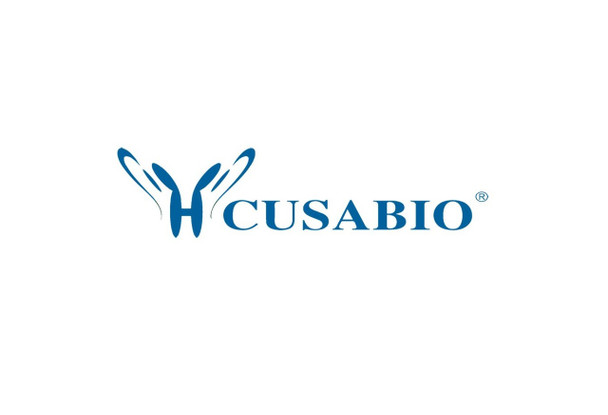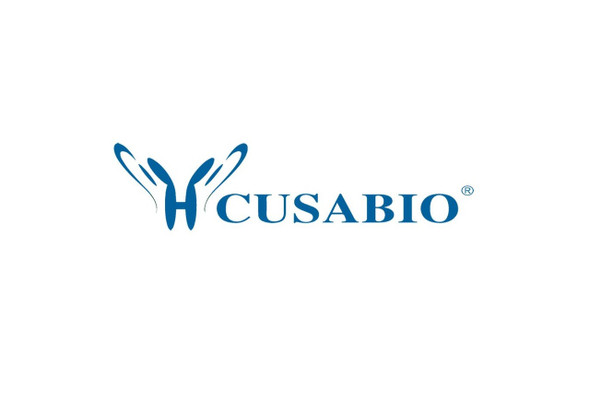Cusabio Clostridium botulinum Recombinants
Recombinant Clostridium botulinum C phage Main hemagglutinin component type C (HA-33) | CSB-EP338424CLQ
- SKU:
- CSB-EP338424CLQ
- Availability:
- 3 - 7 Working Days
Description
Recombinant Clostridium botulinum C phage Main hemagglutinin component type C (HA-33) | CSB-EP338424CLQ | Cusabio
Alternative Name(s): HA 33 kDa subunit HA1
Gene Names: HA-33
Research Areas: Others
Organism: Clostridium botulinum
AA Sequence: SQTNANDLRNNEVFFISPSNNTNKVLDKISQSEVKLWNKLSGANQKWRLIYDTNKQAYKIKVMDNTSLILTWNAPLSSVSVKTDTNGDNQYWYLLQNYISRNVIIRNYMNPNLVLQYNIDDTLMVSTQTSSSNQFFKFSNCIYEALNNRNCKLQTQLNSDRFLSKNLNSQIIVLWQWFDSSRQKWIIEYNETKSAYTLKCQENNRYLTWIQNSNNYVETYQSTDSLIQYWNINYLDNDASKYILYNLQDTNRVLDVYNSQIANGTHVIVDSYHGNTNQQWIINLI
Source: E.coli
Tag Info: N-terminal 10xHis-SUMO-tagged and C-terminal Myc-tagged
Expression Region: 2-286aa
Sequence Info: Full Length of Mature Protein
MW: 53.6 kDa
Purity: Greater than 85% as determined by SDS-PAGE.
Relevance: Protects the structural integrity of the neurotoxin; may increase internalization of the neurotoxin into the bloodstream of the host. Involved in binding to the small intestine through interactions with glycolipids and glycoproteins containing sialic acid moieties.
Reference: "Botulinal neurotoxin C1 complex genes, clostridial neurotoxin homology and genetic transfer in Clostridium botulinum." Hauser D., Gibert M., Marvaud J.C., Eklund M.W., Popoff M.R. Toxicon 33:515-526(1995)
Storage: The shelf life is related to many factors, storage state, buffer ingredients, storage temperature and the stability of the protein itself. Generally, the shelf life of liquid form is 6 months at -20?/-80?. The shelf life of lyophilized form is 12 months at -20?/-80?.
Notes: Repeated freezing and thawing is not recommended. Store working aliquots at 4? for up to one week.
Function: Protects the structural integrity of the neurotoxin; may increase internalization of the neurotoxin into the bloodstream of the host. Involved in binding to the small intestine through interactions with glycolipids and glycoproteins containing sialic acid moieties.
Involvement in disease:
Subcellular Location:
Protein Families:
Tissue Specificity:
Paythway:
Form: Liquid or Lyophilized powder
Buffer: If the delivery form is liquid, the default storage buffer is Tris/PBS-based buffer, 5%-50% glycerol. If the delivery form is lyophilized powder, the buffer before lyophilization is Tris/PBS-based buffer, 6% Trehalose, pH 8.0.
Reconstitution: We recommend that this vial be briefly centrifuged prior to opening to bring the contents to the bottom. Please reconstitute protein in deionized sterile water to a concentration of 0.1-1.0 mg/mL.We recommend to add 5-50% of glycerol (final concentration) and aliquot for long-term storage at -20?/-80?. Our default final concentration of glycerol is 50%. Customers could use it as reference.
Uniprot ID: P0DPR0
HGNC Database Link: N/A
UniGene Database Link: N/A
KEGG Database Link: N/A
STRING Database Link: N/A
OMIM Database Link: N/A









